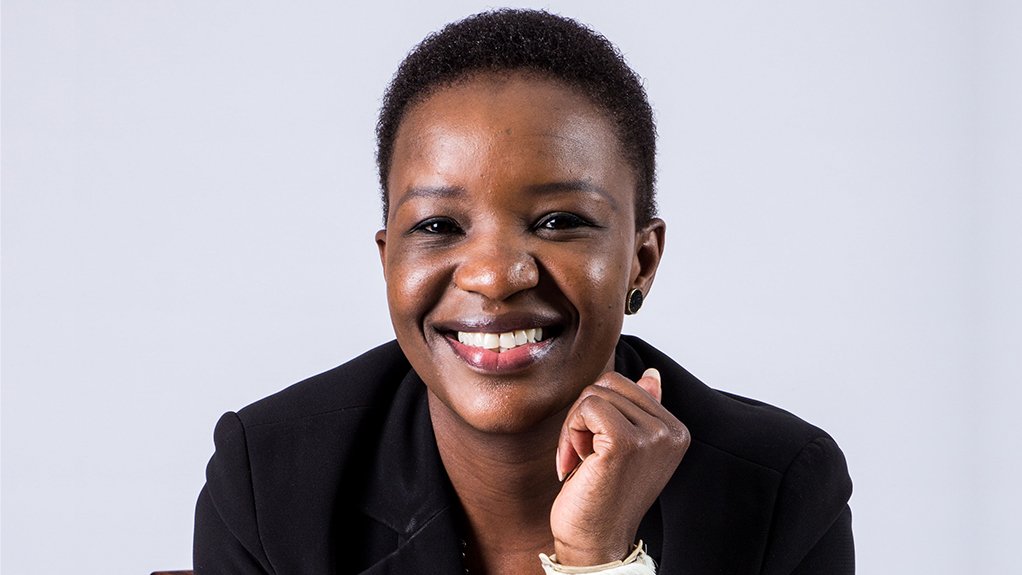BLSA CEO highlights opportunities, concerns in reform of logistics sector
South Africa’s electricity story is an example of what can be achieved when a problem is approached in a new way, and holds potential lessons for other industries, business organisation Business Leadership South Africa (BLSA) CEO Busi Mavuso writes in her weekly letter.
Mavuso says the country has almost achieved the end of loadshedding, which she attributes to private-sector investment in renewable-energy plants, as well as the partnership between government and business enabling State-owned entity Eskom to improve plant performance, all aligned with the Energy Action Plan.
“I found myself pondering the comparison between the electricity story and logistics last week during a meeting of the executive of Transnet and the BLSA Council. Transnet’s new management team is making good progress on many fronts, but, particularly when it comes to drawing on the private sector, there is a limited conception of what is possible.
“There are several public-private partnerships (PPPs) that Transnet is working on, including concessions for Richard’s Bay and Durban ports. But compared with the electricity sector, which enabled a dramatic increase in investment, the steps on the logistics front are lukewarm,” Mavuso states.
She points out that Transnet is struggling to raise finance owing to its high debt level that is costing it R13-billion a year to service, including R60-billion of debt accumulated during State capture for which the utility received no positive value.
The entity now faces a R51.4-billion maintenance backlog for network restoration while its fleet of locomotives is aging rapidly, Mavuso adds.
She says Transnet is working on several private-sector partnerships, largely through ‘private sector participation’ arrangements in which private investors contribute equity or operating leases.
Mavuso calls for the private sector to also be empowered to become a producer and supplier itself, which she asserts would enable rapid progress.
Mavuso points out that the logistics sector has a history of private-sector participation, as demonstrated by, for example, toll roads.
“The N1 and N3 toll roads were among the first PPPs in our democratic history and enabled the rapid deployment of private capital to support economic growth. Those deals made it possible for the private sector to build and operate the roads on 30-year concessions. The model has even worked for cross-border infrastructure, particularly the Maputo Corridor that links Johannesburg to Maputo,” Mavuso avers.
She calls for far greater vision for the rail and ports sector.
“Concessions of whole rail corridors can be done. Whole ports can be concessioned. That could introduce real competition, with rail corridors and ports competing to provide the best and lowest cost services against each other.
“That would enable the economy to become far more competitive in servicing export markets, driving economic growth and creating jobs and tax revenue. And, as the electricity sector has shown, it can happen fast once the key decisions are made,” Mavuso proposes.
She says, however, that she is concerned about the policy environment for logistics in future, with a lack of clarity on which government department oversees large State-owned enterprises (SOEs).
“After the closure of the Department of Public Enterprises at the end of the last election, the SOEs were initially being overseen directly by the Presidency. They are in the process of moving to their policy departments – Eskom to energy and electricity and Transnet to transport, but then they are supposed to be moving to a new SOE holding company once the relevant legislation is enacted.
“This is a potentially long and confusing period in which the kind of vision needed to drive a strategy for the sectors will be difficult to develop. It does not inspire confidence, given the kind of vision we need to ensure world-class logistics services for our country,” Mavuso asserts.
Article Enquiry
Email Article
Save Article
Feedback
To advertise email advertising@creamermedia.co.za or click here
Comments
Press Office
Announcements
What's On
Subscribe to improve your user experience...
Option 1 (equivalent of R125 a month):
Receive a weekly copy of Creamer Media's Engineering News & Mining Weekly magazine
(print copy for those in South Africa and e-magazine for those outside of South Africa)
Receive daily email newsletters
Access to full search results
Access archive of magazine back copies
Access to Projects in Progress
Access to ONE Research Report of your choice in PDF format
Option 2 (equivalent of R375 a month):
All benefits from Option 1
PLUS
Access to Creamer Media's Research Channel Africa for ALL Research Reports, in PDF format, on various industrial and mining sectors
including Electricity; Water; Energy Transition; Hydrogen; Roads, Rail and Ports; Coal; Gold; Platinum; Battery Metals; etc.
Already a subscriber?
Forgotten your password?
Receive weekly copy of Creamer Media's Engineering News & Mining Weekly magazine (print copy for those in South Africa and e-magazine for those outside of South Africa)
➕
Recieve daily email newsletters
➕
Access to full search results
➕
Access archive of magazine back copies
➕
Access to Projects in Progress
➕
Access to ONE Research Report of your choice in PDF format
RESEARCH CHANNEL AFRICA
R4500 (equivalent of R375 a month)
SUBSCRIBEAll benefits from Option 1
➕
Access to Creamer Media's Research Channel Africa for ALL Research Reports on various industrial and mining sectors, in PDF format, including on:
Electricity
➕
Water
➕
Energy Transition
➕
Hydrogen
➕
Roads, Rail and Ports
➕
Coal
➕
Gold
➕
Platinum
➕
Battery Metals
➕
etc.
Receive all benefits from Option 1 or Option 2 delivered to numerous people at your company
➕
Multiple User names and Passwords for simultaneous log-ins
➕
Intranet integration access to all in your organisation





















